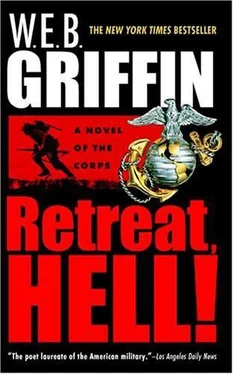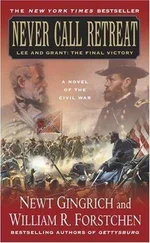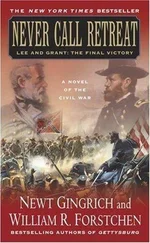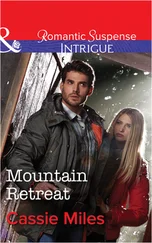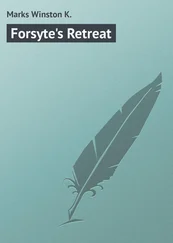"If those tents are where we're going, we're almost there," he said. Yes, sir.
"You and I are both aware that General Pickering might regard this as special treatment for his son," MacArthur said, "and not like it at all."
"I also think you and I would agree, General, that keeping the son of the Deputy Director of the CIA out of enemy hands is the first consideration, even at the risk of offending General Pickering's sense of chivalry. Or, for that matter, offending the entire Marine Corps."
"Well, I'd hate to do that," MacArthur said. "I have reason to suspect that I'm not a hallowed figure in the Halls of Montezuma as it is."
Howe chuckled.
"What I'm going to do, General Howe . . ." MacArthur began, then stopped, smiled, and said, " 'Oh what a tangled web we weave when ere we try to deceive,' " and went on: ". . . is wait until we're just about to take off for Tokyo, and then direct that these machines be immediately placed under the control of the CIA here in Korea, and state that my decision is not open for discussion."
He paused again, then explained: "That way, Colonel Huff will not connect our little chat with that order. And further, with a little luck, General Pickering will not hear of this until it is a fait accompli."
"Yes, sir," Howe said.
"And when that inevitably happens, and he comes to me, as I strongly suspect he will, I will resort to the last defense of the Machiavellians. I will tell the truth. These machines were brought to my attention; I concluded that at the moment I could see no really practical operational use for them, but thought that the CIA might find some use for them."
[FIVE]
The Capitol Building
Seoul, South Korea
12O5 29 September 195O
"Mr. President," General of the Army Douglas MacArthur sonorously intoned, "in God's name, I herewith return the city of Seoul to you as the chief of its lawful government."
There came the shock wave of what most experienced soldiers and Marines in the building recognized as coming from a massive 155-mm cannon "time on target"—that is, the firing of perhaps ten, fifteen, or more heavy cannon nearly simultaneously, so that their projectiles would all land on the target at the same instant.
The shock wave caused plaster and glass to fall from the ceiling and walls of the bullet-pocked building. Many people cringed.
MacArthur did not seem to notice.
"I invite you now to join me in recitation of the Lord's Prayer," he went on. "Our Father which art in heaven ..."
"Am I allowed to ask questions?" Captain George F. Hart, USMCR, asked of Brigadier General Pickering ten minutes later.
"Shoot," Pickering said.
"That was the DSC El Supremo gave Almond and the other guy, Walker, wasn't it? The cross, as opposed to the medal? As in DSM?"
"A little decorum would be in order, Captain Hart. Yes, General MacArthur has just decorated General Almond and General Walker with the Distinguished Service Cross."
"I thought that was like the Navy Cross, that you only got it for courage above and beyond in combat."
"The DSC is the Army version of the Navy Cross. And General MacArthur apparently feels that the service of both general officers was above and beyond the call of the duty in combat. Any further questions, Captain Hart?"
"No, sir."
"Good," Pickering said. "One day, George, your curiosity is going to get us both in trouble." He paused. "Where's McCoy going to meet us?"
"Outside," Hart said. "He sent Zimmerman back out to Kimpo to see if Colonel Dunn had sent any fresh aerials, and wasn't sure they'd let Zimmerman in here without a fuss."
"Let's go. El Supremo told me he wants to get out of here as soon as possible."
Miss Jeanette Priestly was sitting in McCoy's Russian jeep and he and Zimmerman were leaning against it. The men stood erect when they saw Pickering coming.
"You should have come inside, Ken," Pickering greeted him. "That was an historic moment."
"I wanted to see what, if anything, Billy Dunn came up with," McCoy said matter-of-factly, then added: "Nothing, I'm afraid, sir."
"And what do you make of that, Ken?" Pickering asked.
"He's moving again, sir. Probably north. Zimmerman told Colonel Dunn where we think he might be headed. Either almost due east, toward Wonju, or northeast, toward Chunchon. There's not many paved roads in that area, mostly rice paddies. I think he wants to be somewhere where there won't be much movement on the roads. ..."
"Like yours, for instance," Jeanette said.
The men looked at her but said nothing.
". . . and where he can easily find rice paddies to stamp out his arrows," McCoy finished.
"Explain that, please," Pickering said. " 'Easily find rice paddies'?"
"We have to presume, sir, that the NKs have also come across one of Pick's stampings. And that they would be looking for others. The advantage we have is that we've got air superiority, which means they have to look at paddies from the ground. The more paddies there are, the more they have to look at. . . ."
Pickering nodded.
"I take your point. You think Pick has thought of this?"
"I'm sure he has," McCoy replied. "General, there's often been two- and three-day intervals between sightings. There may be another this afternoon; if not, then probably tomorrow. When there is—"
"You'll go out again," Pickering finished the sentence for him.
"Yes, sir. Of course."
"Pick is really putting a lot of lives at risk, isn't he?" Pickering said, and then he heard what he had said and added: "That sounded pretty stupid, didn't it?"
"General," McCoy said, "we're Marines. We go after people who find themselves in trouble."
"What I meant to say was that the lives we're putting at risk are yours and Zimmerman's, and I can't afford to lose either of you. Isn't there someone else who could go out there and look for him?"
"As of right now, sir, 1st MarDiv hasn't said anything about wanting to get back the people—it's an understrength company—who were on the Flying Fish Channel Islands. If I knew I could keep at least twenty or so of them, Ernie and I could bring them up to speed in three or four days. That would at least allow Ernie to go with one recon patrol, and me with another."
"You're talking about the Marines that are now at that hangar with the helicopters?"
"Yes, sir," McCoy said. "The problems with that are taking rations-and-quarters care of them, getting enough vehicles to carry them, and then deciding what, if anything, we tell them about why it's so important we get Pick back—and, for that matter, who Ernie and I work for. They're going to wonder."
Pickering considered that for a moment.
"I'll tell General Smith—he'll be at the airport—that I'd like to keep those Marines for a while. And I'll tell General Almond you're going to need jeeps and so forth."
“Yes, sir.”
"And if General Smith goes along, I'll decide later what they're to be told."
"Yes, sir."
He looked back at the Capitol Building. Officers and other dignitaries were getting into the staff cars to accompany MacArthur back to Kimpo Airfield.
"The Imperial procession is forming," he said. "I've got to go." He put his hand out to Jeanette Priestly. "It was good to see you, Jeanette. Is there anything I can send you from Tokyo?"
"Thank you, but no thank you. I'm going with you."
"On the Bataan?” Pickering asked, surprised.
"I've already asked El Supremo," she said. "I don't know about you guys, but when I smile at him, I get just about anything I want."
She jumped nimbly out of the backseat of the Russian jeep.
[SIX]
Читать дальше
